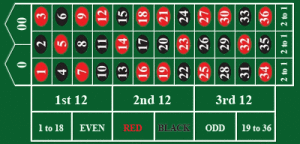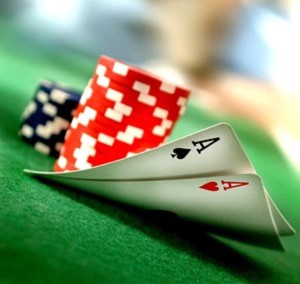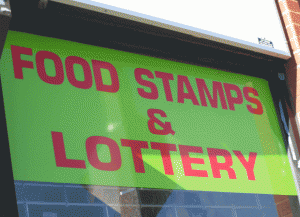
I hate money. Apparently the feeling is mutual.
I know this because I am writing this from a hotel room near the Golden Nugget in downtown Las Vegas, following a typical encounter between a poker table and me.
Here’s how this usually goes, and also how it went again today:
I sit down, feeling relaxed and ready to have a fine time with my close personal friend, money. A few minutes or hours later my money – that ungrateful Judas – goes home with someone else.
Gambling is evil
I should stop at this point to state the obvious. Gambling is terrible for you. It’s terrible for society.
When I am finally appointed Lord of all Catan and get to set the rules for everything everywhere, gambling will be outlawed in this country except in tiny pockets of sin like Las Vegas and Atlantic City. Like many, I see a big difference between what’s “fair for me” – I personally like to play poker – and what’s “fair for society” – most people should never gamble.
In the same spirit, I deliver the following Public Service Announcements: Kids, don’t do drugs! Also, definitely avoid intimate contact until marriage!
Anyway, like I said, gambling is terrible. (Also, its super fun!)
All joking aside, I have an important message today – a non-hypocritical Public Service Announcement – inspired by my visit to the Golden Nugget.
Market as Casino?
When I taught a course for adults recently called “Get Rich Slow” one of my students asked whether the stock market ‘just represented one big casino.’

A retired widow herself, she commented that young people see investing in stocks as a ‘a rigged game, only benefitting the wealthy.’ Is it true, she asked?
She is dead wrong.
Also, she is righter than she knows. I feel very strongly about this, both ways. I’ll explain.
Dead wrong
Investing in stocks is not gambling at a casino.
Investing in stocks for the long run, in fact, is the exact opposite.
Stocks (in particular diversified stocks) held over the long run (at least 5 years, but 20 years is better) will make you money.
Gambling at a casino, in the long run, guarantees the gambler will lose money. In the long run, the more you gamble, the more likely you are to see your money go home with someone else.
I’ve played blackjack, craps, and roulette. I’ve played poker and sat down in front of slot machines. I’m not proud of any of this.
The casinos understand the odds, and they set all of these up as unwinnable games, over the long run. Casinos simply don’t offer games that lose money for them in the long run.
We can summarize this idea as “the house always wins.’
I’m not saying I haven’t walked away from a roulette table richer than I started, because I have. On any given day, of course an individual gambler can come out ahead. It happened in the Dominican Republic to me once, involved witchcraft, and it’s a long story I won’t recall here. But that just represents the improbable and occasional victory of witchcraft over math.
Just remember, the more you gamble at a casino, the more the mathematics work against you. There’s just no way around it.
Righter than she knows
The widow from my class is right in a difference sense, however, that investing in stocks is a rigged game. Here’s my strongest statement on the topic, addressed specifically to the young person wondering about the stock market:
In our capitalist system, the stock market is a ‘rigged game,’ in the sense that over the long run, stocks always win.

Let me clarify what I mean by stock market investing for the long run. By “stock market investing for the long run” I don’t mean that particular form of gambling shilled by the Financial Infotainment Industrial Complex that you can watch on MSNBC, CNBC or Fox News after the closing bell. I don’t mean what’s referred to by the nonsense headlines “Hot stocks to buy now!” or “Best Fund Managers 2015!” being sold by Hot Money Magazine or whatever glossy garbage rots on newsstands this week. I really, really, don’t mean the ‘investing tips’ of day-trading e-news updates filling up your browsers on a moment-by-moment basis.
I specifically mean purchasing a broadly diversified, low-cost (probably indexed) mutual fund, and never selling. I mean a holding period of at least 5 years, but preferably for 20 years or more. I mean purchasing diversified stocks with no end date, no sale date, in mind.
Stock markets go up, stock markets go down. Businesses grow and businesses die. People buy and people sell. It doesn’t matter if you’re the long-term owner of stocks, because you will make your impressive percentage return on your money in the long run, no matter what.
Please understand: If you are a long-term investor in the stock market, you are not the gambler, you are the house, and the house always wins.
Please see my post on my visit to downtown Las Vegas and the “Downtown Project.”
Tourists, and the Antidote – Exploring Las Vegas’ Downtown Experience
The downtown monoculture problem – Las Vegas and San Antonio
The limited role of government in curing a downtown monoculture
and an upcoming post, The role of the visionary billionaire in curing a downtown monoculture
Please see other related posts:
Book Review: Simple Wealth, Inevitable Wealth, by Nick Murray
Book Review: All The Math You Need To Get Rich, by Robert L Hershey
Interview With Mint.com – I Give ALL The Answers
A version of this post on casinos and stocks appeared in the San Antonio Express-News
Post read (2897) times.




